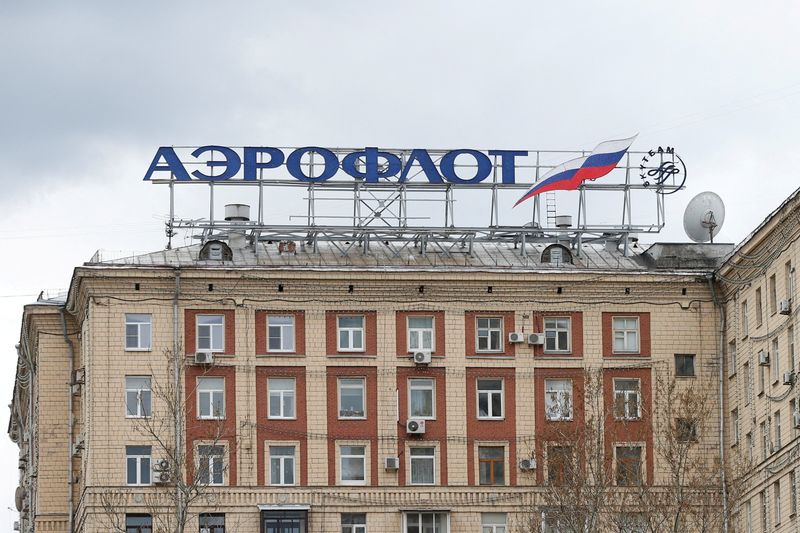By Conor Humphries and Padraic Halpin
DUBLIN (Reuters) - Aircraft leasing companies, which own most of the world's passenger jets, face a tricky balance between risks and rewards after losing 400 planes in Russia, but have made no "knee-jerk" withdrawal from any major market yet, executives said.
The lessors took a hit of almost $10 billion when Russia barred airlines from returning planes hit by Western sanctions to their owners in the West. This has turned the spotlight on other risky markets, most prominently China and Taiwan, where some fear future conflict could cause a similar seizure on a much larger scale.
"It's going to have long lasting impacts beyond when this is settled," said Robert Korn, president and co-founder of Carlyle Aviation Partners, which owns or manages 415 jets worth $12 billion, citing "significant changes" to the availability of insurance.
"It's going to take quite a long time for financiers, for lessors, for institutions to truly feel comfortable returning to many of these places," he told the Airline Economics conference, one of two flagship annual conferences held in Dublin, home of most major aircraft lessors.
Leasing firms, which together financed more than 60% of passenger jet deliveries globally last year, are currently suing insurers in a bid to recoup their Russian losses. Executives complained of growing insurance costs, difficulty sourcing some coverage and a heightened focus on the small print of contracts.
When discussing the Russia losses, most executives speaking at the conference, also touched on China risks.
"Clearly the tension between the U.S. and China is a point of key focus and concern," said John Plueger, chief executive of Air Lease (NYSE:AL) Corporation, who said there was now "much more" concern in the industry about geopolitical risk.
"China and Taiwan are very active markets for us. Would I be willing to do 200 more airplanes tomorrow in China or Taiwan? Hmmm I'm not so sure about that," Plueger said.
GUESSWORK
But any political risk assessment would always involve a lot of guesswork, Plueger said.
"I mean can anyone here tell me what China's going to do over the next month, two months, year?"
Several executives said the loss of aircraft to Russia would simply feed into risk management models and encourage lessors to be careful about spreading their exposure rather than withdrawing from markets altogether.
"I don't think there's any knee jerk here," said Andy Cronin, chief executive of No. 3 lessor Avolon. Avolon is controlled by Bohai Leasing, a majority-owned subsidiary of China's HNA Group.
"I think it's back to that overall risk policy. How big is your concentration in any jurisdiction? And that's what we assess," Cronin told Reuters.
The problem for lessors is risky markets are often where they make most money, as airlines in more mature markets have easier access to capital, said Mark Wasden, a senior analyst at Moody’s Investors Service.

"I think the lessor business model disproportionately exposes them to weaker areas, that's just a function of the model, that's where they get their yields, that's where the capital need resides," Wasden said.
"Lessors aren't going to be able to abandon higher risk areas because that is what they do," he added.